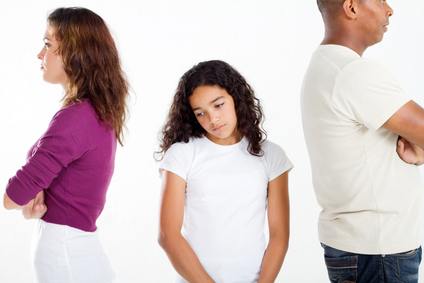About 70% of my case load involves helping people with relationship issues. Not being in a relationship or living alone, our thoughts, feelings, view on things, or style of doing things is not challenged or questioned like they might be in a relationship. Because we are endowed with social drives and instincts, we tend to gravitate toward a connection to other human beings. Most mental health experts agree that human connection is required for survival that begins with attachment and bonding experiences with the care giver. A normal attachment with a mother and father figure will foster not only secure attachments in lifelong relationships but also how one handles emotional balance in life. Many of the difficulties in adult relationships are a consequence of various childhood developmental needs that were frustrated or not satisfied. For example, the child will take his wagon and walk away most of the time if he cannot be 100% right. If an adult wants to be 100% right, he will be in some frustrating times when in a relationship. Besides childhood behaviors impairing relationships, alcohol and drugs and mental health issues will challenge relationships.

The husband and wife, unmarried couples, same sex couples and individuals who struggle to find positive relationships are the most common relationships I see. In these settings there are four major stages and specific developmental tasks.
The first stage is the most fun and easiest to experience. Two human beings start out with a sense that the other is attractive. They become infatuated and it is easy to connect with each other. Chemistry is felt and indeed the body does produce a natural narcotic hormone called oxytocin. The couple will project their hopes and dreams about what they want in a relationship with each other. They generally fall in love with love and do not clearly see the true nature of the other person. It is all good except for those who have been here too many times. The joy can be dampened by not wanting to get disappointed or hurt. It is a choice to hang in there and take a chance or declare relationships off limits. Friends with benefits are a half in, half out type of relationship similar to texting being a form of quasi communication. Some people actually get addicted to the exciting experience in stage 1, driven by the oxytocin running through their veins.
Some people want to have a stage 1 relationship experience, but it may feel too awkward, scary and unattainable. If stage 1 does get off the ground, it will last less than six months and the peak experience will never return or have the intensity ever again in the relationship. People who expect a stage 1 relationship to last forever will be forever disappointed and will not be able to progress to stage 2.
In stage 2 the couple learns to deal with the bad or the differences they experience with each other. The rose colored glasses are now coming off. If someone expects the relationship to be all good, this is where the person will get off. Some types of personalities will chronically blame the other person for things going bad in the relationship. Counseling addresses a lot of factors and dynamics that influence a couple’s ability to deal with the bad. On an individual level, it depends upon the degree of maturity or how much kid behavior is acted out in the relationship. The degree of mental health and sobriety the person brings to the relationship is important. The biggest factor is how well-integrated and accepting the person is with his/her own good and bad. By accepting his or her mix of good and bad, the person will have an easier time accepting the other person’s good and bad. How much the couple cherishes the relationship is very important. When the issues become bigger or more important than the relationship, than a person’s self survival or integrity will trump the relationship.

Most of my clients in relationship counseling are stuck in stage two. I help them see where they are stuck and if they want to or can get unstuck. The couple’s opportunity to resolve their conflict increases the more a couple can withhold blaming and be aware of their own individual issues.
Stage three involves the humdrum of life. Now a couple has the responsibilities of life like a job, career, children, education, college, health issues, etc. A couple can easily get overly involved in these activities, in addition to stage two issues, and become strangers. The more a couple become strangers, the more difficult it is to solve relationship problems. Men and women tend to feel connected in different ways in this stage. From an archetypal, symbolical and biological perspective, a women’s relational quality is determined by a sense of empathy and emotional intelligence which is necessary to have and raise healthy children. A man’s relational experience is determined more by a sense of what is practical/utilitarian, relying less on emotional intelligence and more on what is logical to obtain material resources. In stage three, men and women tend to expect each other to connect using their own specific male/female relational functioning for connecting. This can also be true with same sex partners by each adopting male and female traits. Part of my approach in this stage is to help balance these conflicting needs and expectations.
In stage four, the children are gone, retirement has occurred or is imminent and the future is looming.
If the couple succeeded staying connected in stage three, they will have little difficulty defining or dealing with their future. If the life activity in stage three was mostly a diversion from staying connected, they will face each other as strangers. Can the couple come together and move into the future together or will they live separate lives while in or out of the relationship? This is the question we usually grapple with in counseling. Can the couple identify what does not feel right or missing as a sign of loneliness in the relationship? Once again it will be difficult to solve the angst and discontent if the attachment and connection is not there.

The quality of the human relationship is a very powerful force that influences longevity, emotional and physical health of the individual. A positive relationship can be very healing if it promotes acceptance and unconditional love. A negative relationship that destroys or discourages the true self can be very destructive. Relationships can be a potent force for self actualization by challenging the individual to become more than they would be if living alone. Just like an individual is a mix of good and bad, so is the nature of relationships.